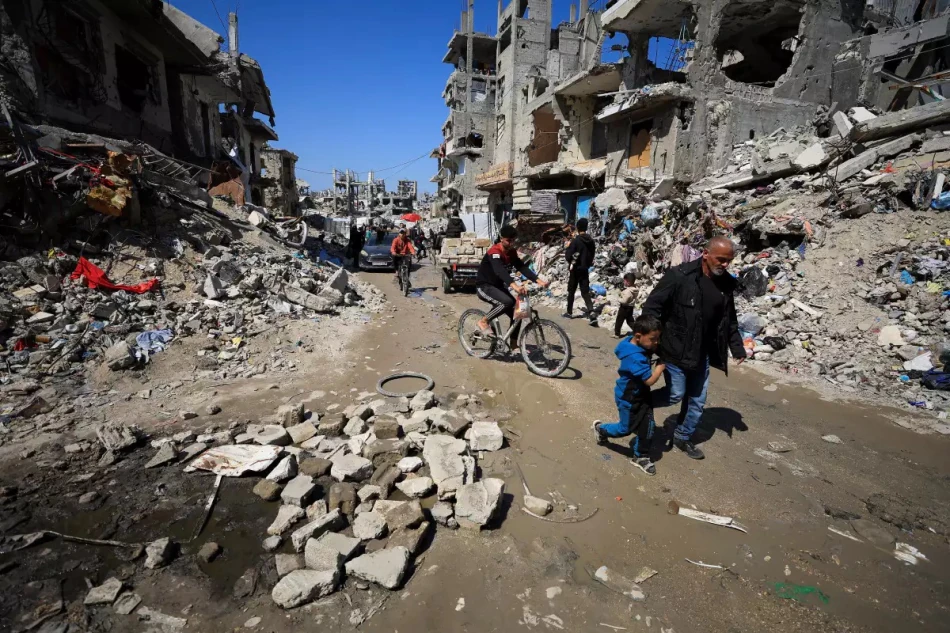
Israeli Security Cabinet Approves Netanyahu's Proposal to Occupy Gaza
Netanyahu's Cabinet Approves Full Control of Gaza City as 22-Month War Escalates
Israeli Prime Minister Benjamin Netanyahu's security cabinet has approved a controversial plan for complete Israeli control over Gaza City, marking a significant escalation in the 22-month conflict that began after Hamas's October 7, 2023 attack. The decision comes despite opposition from former senior security officials and families of hostages who fear the move could jeopardize remaining captives.
Five Pillars of Israel's End-Game Strategy
The cabinet voted by majority to adopt five core principles for ending the war: disarming Hamas, returning all hostages (living and deceased), demilitarizing the entire Gaza Strip, establishing Israeli security control over Gaza, and creating an alternative civilian administration independent of both Hamas and the Palestinian Authority.
According to Netanyahu's office, an "overwhelming majority" of government ministers rejected an alternative plan presented to the cabinet, arguing it would neither defeat Hamas nor secure the return of hostages. The statement provided no details about this rejected alternative.
Strategic Implications for Regional Security
This decision represents a fundamental shift toward long-term Israeli presence in Gaza, potentially reversing the 2005 unilateral withdrawal when Israel dismantled 21 settlements and pulled out all forces. That withdrawal, once hailed as a step toward peace, has now become a cautionary tale for Israeli policymakers who argue it created the conditions for Hamas's rise to power.
The plan effectively envisions a return to direct Israeli administration of Gaza, similar to the occupation that lasted from 1967 to 2005. However, the current security environment and international context present far greater challenges than during the previous occupation period.
Military Reality on the Ground
Israeli forces currently occupy or conduct ground operations across approximately 75% of Gaza's territory, operating from fixed positions within the Strip and launching operations from border installations. Daily aerial and artillery bombardment continues across the enclave.
The military infrastructure for expanded control is already partially in place, but full civilian administration would require significantly more resources and personnel. The Israeli military has demonstrated it can control territory militarily but governing 2.4 million Palestinians presents exponentially greater challenges.
Domestic and International Resistance
The decision faces strong opposition from multiple quarters. Families of the estimated 100 remaining hostages protested outside the security cabinet meeting in Jerusalem, fearing that military escalation could endanger their loved ones' lives. Their concerns reflect a broader tension between military objectives and hostage recovery efforts.
Former senior Israeli security officials have also criticized the plan, warning of a military quagmire with minimal strategic benefits. These voices carry significant weight given their experience with previous Gaza operations and understanding of the territory's complexities.
Humanitarian Crisis Deepens
The war has devastated Gaza's infrastructure and displaced virtually all 2.4 million residents at least once, according to UN estimates. International organizations, including the United Nations, have recently warned of impending famine conditions across the Strip.
Full Israeli control would make Israel directly responsible for humanitarian conditions, potentially creating legal and diplomatic complications under international law regarding occupying powers' obligations to civilian populations.
Historical Precedent and Future Challenges
Israel's previous 38-year occupation of Gaza from 1967-2005 offers both lessons and warnings. While Israeli forces maintained security control, the occupation became increasingly costly in both human and financial terms, particularly during the First and Second Intifadas.
The current plan's success would depend heavily on international support, regional stability, and the emergence of credible Palestinian partners for civilian governance. Without these elements, Israel risks becoming mired in an indefinite occupation with mounting costs and diminishing returns.
The cabinet's decision signals Netanyahu's belief that only complete military victory can achieve Israel's security objectives, rejecting compromise solutions that might leave Hamas's military capabilities intact. However, this maximalist approach also carries maximum risks, potentially extending the conflict indefinitely while complicating efforts to normalize relations with regional partners and maintain international support.
Most Viewed News

 Sara Khaled
Sara Khaled






